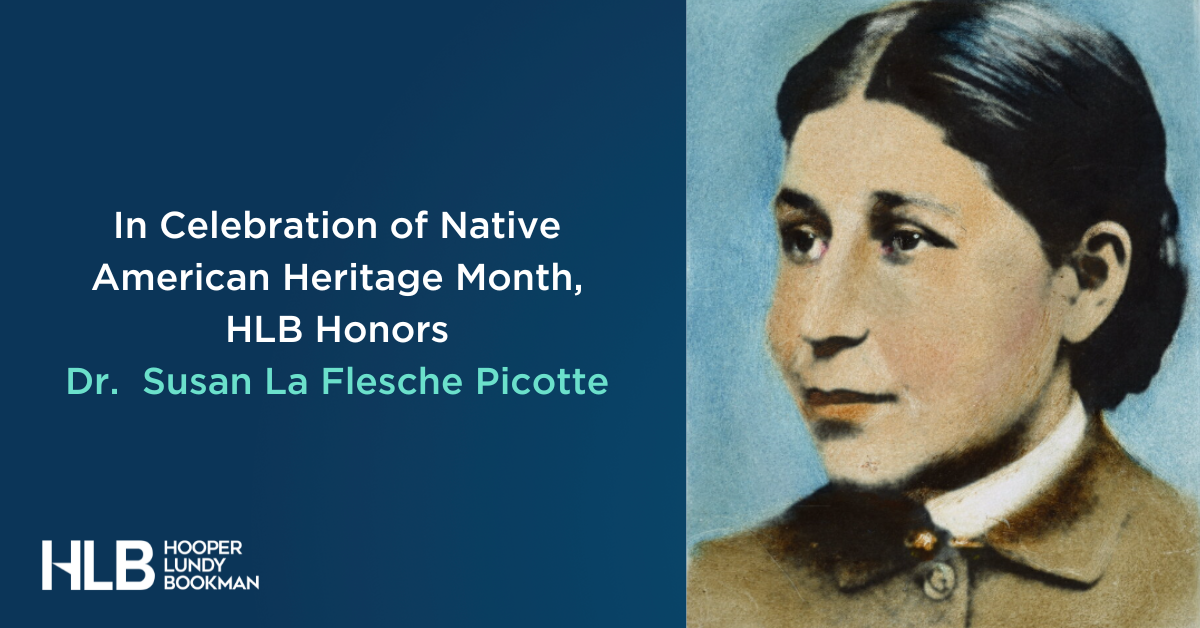
In honor of National Native American Heritage Month, we present Dr. Susan La Flesche Picotte (1865-1915), the first Native American woman to become a medical doctor. She was born in the Omaha Tribe of Nebraska and was the daughter of an Omaha chief, Iron Eye. Growing up, Dr. Picotte was exposed to the devastating effects of diseases such as smallpox, tuberculosis, and cholera on her tribe and the surrounding communities. This gave her a strong desire to become a medical doctor and help her people.
After completing her primary education, Dr. Picotte went on to attend the Hampton Institute in Virginia, where she excelled academically. She then enrolled at the Women’s Medical College of Pennsylvania, becoming one of the first Native American women to pursue a career in medicine. She graduated in 1889 with honors, becoming the first Native American woman to earn a medical degree.
Upon graduation, Dr. Picotte returned to the Omaha reservation, where she worked as a physician under the auspices of the Office of Indian Affairs. She served beyond her required duties, providing care to the Omaha Tribe and its neighboring communities, quickly establishing herself as a dedicated and compassionate doctor to over 1,200 people across 1,300 square miles. Dr. Picotte made house calls across a vast region of prairie, traveling for hours to make house calls on foot, on horseback and later, in her buggy, and she often returned home to find a line of patients waiting for her at home. “My office hours are any and all hours of the day and night,” Dr. Picotte said.
In addition to treating patients, Dr. Picotte also worked to improve the overall health and well-being of her community. She provided her home not only as a medical office, but as a community space providing advice on everything from health to law. She advocated for better sanitation, clean water, and proper nutrition, and she also worked to provide education and health care to children. Despite facing significant challenges, including a lack of resources, inadequate funding, and discrimination, Dr. Picotte never lost her passion for helping others.
Dr. Picotte’s dream of a hospital for her community was realized in 1913 when the Susan La Flesche Picotte Memorial Hospital was opened in Walthill, Nebraska. This hospital is currently being restored and transitioned into the Dr. Susan La Flesche Picotte Center, which will provide a medical clinic, mental health and substance abuse clinic, youth programming, historical museum, and cultural and educational spaces.
Dr. Susan La Flesche Picotte was a remarkable person who overcame great obstacles to become the first Native American woman medical doctor. Her legacy continues to inspire and motivate others to pursue careers in medicine and make an impact in their communities, and she remains an important figure in Native American history.
For more information, please view the PBS documentary short film about Dr. Picotte, “The First American Indian Doctor,” or the documentary film about Native American women healers including Dr. Picotte, entitled Medicine Woman.” You can also listen to an interview with Princella RedCorn, the director of “Medicine Woman,” about the inspiration behind and production of the latter film.